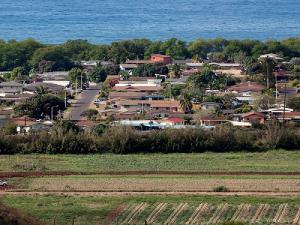Environment
Resettlement in contaminated areas steamrolls ahead as residents mark Fukushima anniversary
Greenpeace on March 11, commemorates the more than 15,000 people who died six years ago in the Great East Japan earthquake and tsunami, and the tens of thousands of survivors of the ongoing Fukushima Daiichi nuclear disaster.
- Read more
- 332 reads
New Report Calls On World Heritage Committee To Protect Threatened Corals
A report by lawyers at Earthjustice and Environmental Justice Australia, launched last week in Paris, outlines the international legal responsibilities of nations with World Heritage-listed coral reefs to take action to protect those reefs from the devastating effects of climate change.
- Read more
- 332 reads
Greenpeace images show Great Barrier Reef suffering coral bleaching for second year in a row
Greenpeace Australia Pacific, on March 9, releases shocking photos and footage documenting the Great Barrier Reef’s first severe coral bleaching to happen two years in a row. The bleaching is the result of 12 months of above-average sea temperatures, which is “cooking the reef alive”.
- Read more
- 322 reads
EPA Opens Civil Rights Investigation Over Pesticide Use In Hawai'i

Fields planted with GMO crops, and sprayed with pesticides, are located adjacent to homes on Kauaʻi.
- Read more
- 339 reads
Papua’s first 'Village Forest' handed over, after decade fighting deforestation
A 3,545 hectare slice of Papua’s rainforest, on March 9, was officially placed in community hands, to be protected and managed by the indigenous people of the Knasaimos landscape in West Papua’s Bird’s Head Peninsula. This is the first Village Forest to be established in Papua and it allows the communities of Manggroholo and Sira villages, situated in South Sorong district, to put a stop to the threat of deforestation from illegal logging, palm oil and pulpwood plantations.
- Read more
- 355 reads
Palm oil: the high cost of cultivating the cheap vegetable oil
Palm oil is extensively used in food, cosmetics and biofuels, however the unsustainable production of the cheap vegetable oil leads to deforestation, loss of nature habitats and greenhouse gas emissions. Czech GUE/NGL member Kateřina Konečná calls on the European Commission to take measure to promote the responsible cultivation of palm oil and phase out its use for biofuels. The environment committee votes on her report on 9 March.
- Read more
- 324 reads
New Conservation Initiatives Recommended for Lumbini, the Birthplace of the Lord Buddha

- Read more
- 335 reads
Judge Upholds Decision To End "No Otter Zone"
For the second time in as many years, a federal judge last Friday upheld the U.S. Fish & Wildlife Service’s decision to end the “No Otter Zone”—a failed program that the government determined would harm the sea otter population by excluding the animals from their historic range along the southern California coast.
- Read more
- 325 reads
Conservation Groups Intervene To Defend Washingon State Against Coal Exporter's
On March 7, Columbia Riverkeeper, Washington Environmental Council and Sierra Club—represented by Earthjustice—took steps to defend the Washington Department of Natural Resources against a high-profile lawsuit filed by backers of the nation’s largest coal export terminal. On Feb. 2, Millennium Bulk Logistics and NW Alloys (a subsidi
- Read more
- 338 reads
Fukushima resettlement policy violates international human rights commitments & Japanese law
Japan’s policy to resettle residents to heavily contaminated areas in Fukushima is in contravention of Japanese law and multiple international human rights treaties. On March 7, Greenpeace Japan and Human Rights Now detailed numerous human rights violations resulting from the Japanese government’s response over the past six years to the 2011 Fukushima Daiichi nuclear disaster.
- Read more
- 354 reads
Human Rights
Fostering a More Humane World: The 28th Eurasian Economic Summi

Conscience, Hope, and Action: Keys to Global Peace and Sustainability

Ringing FOWPAL’s Peace Bell for the World:Nobel Peace Prize Laureates’ Visions and Actions

Protecting the World’s Cultural Diversity for a Sustainable Future

Puppet Show I International Friendship Day 2020

